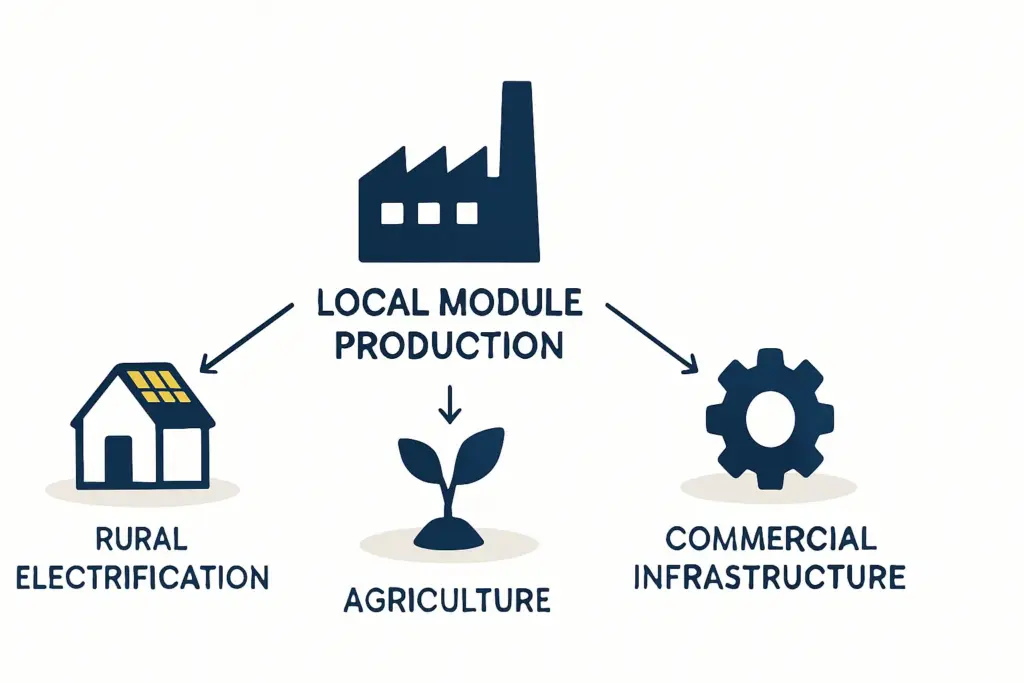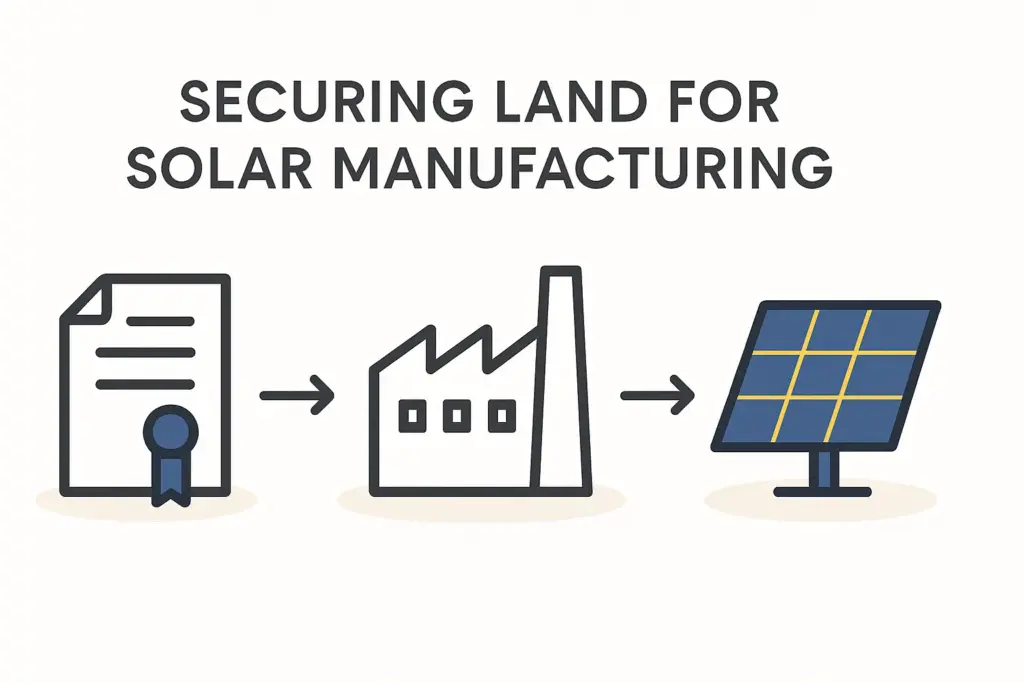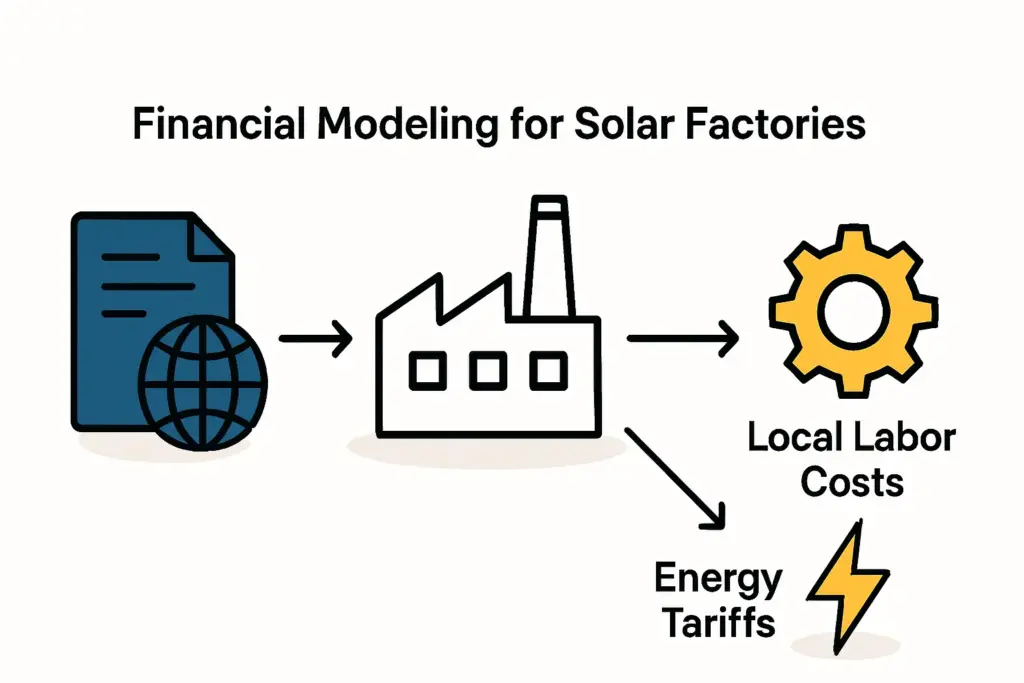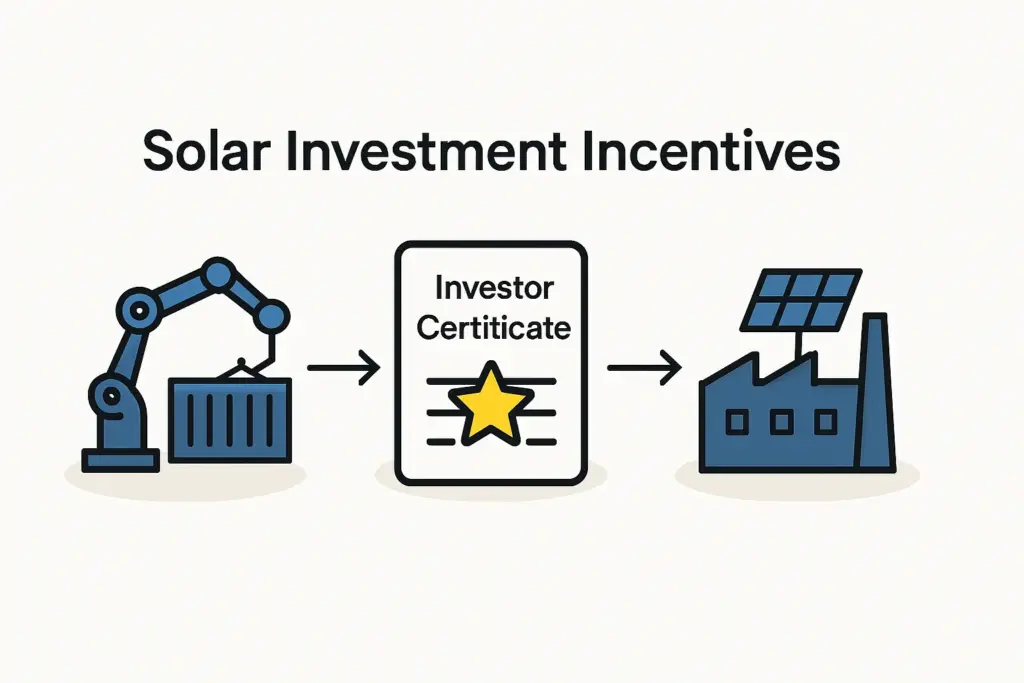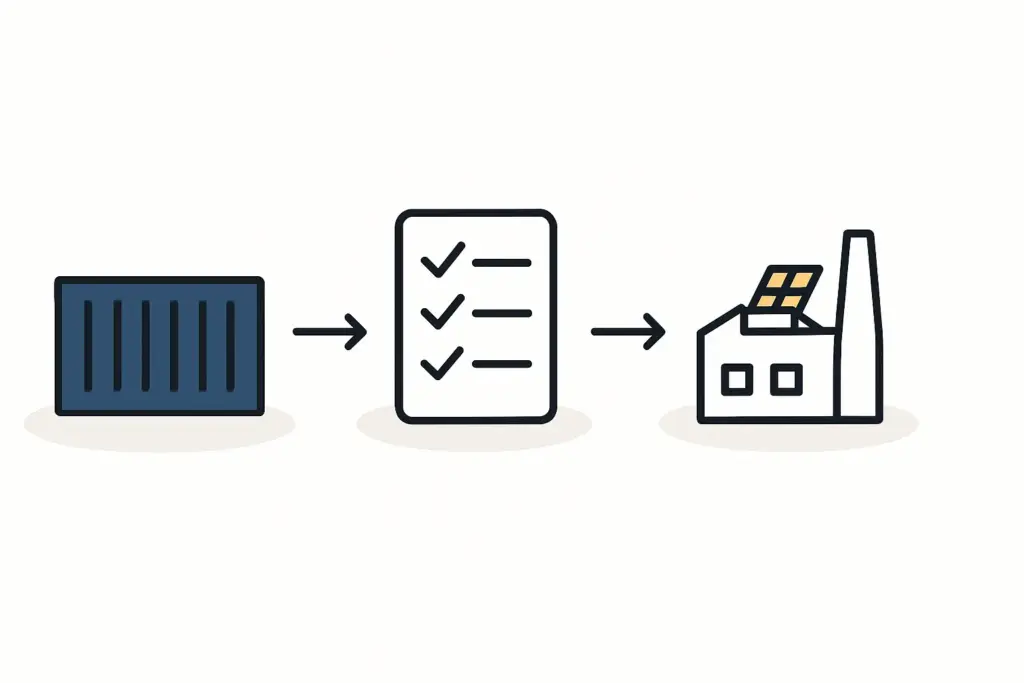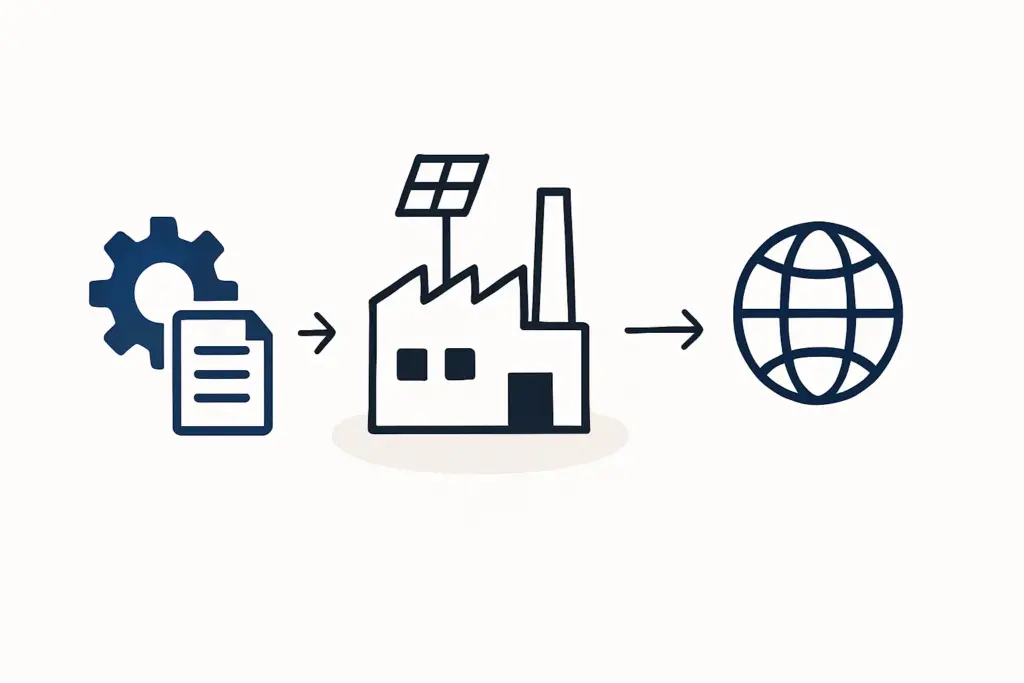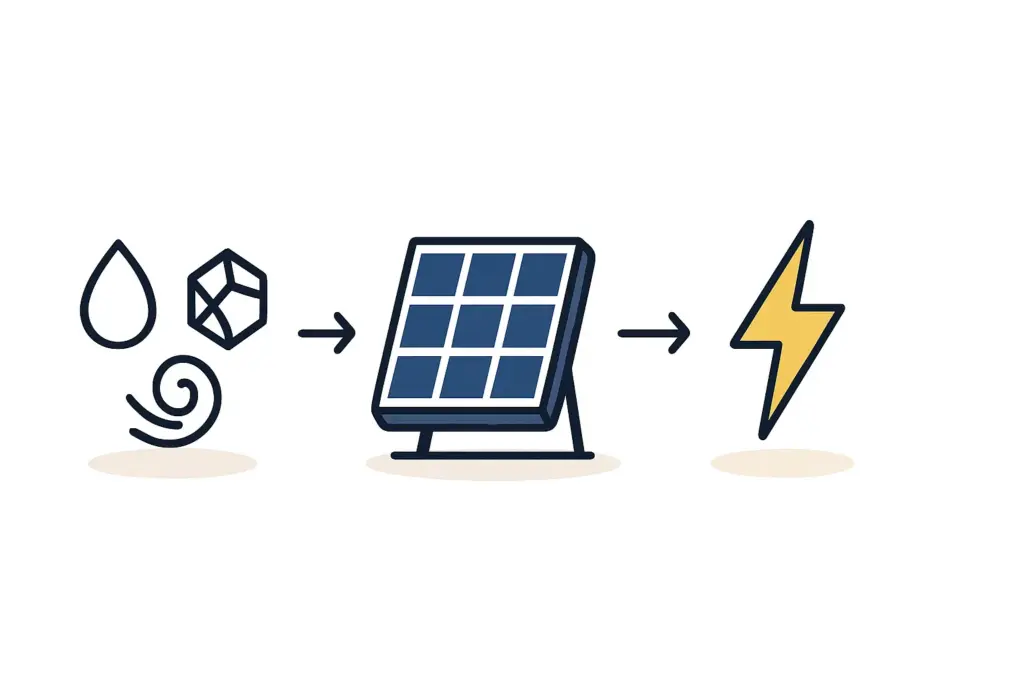Gain comprehensive insights into the statistics and metrics surrounding the solar production industry in Guinea-Bissau
- Climates to travel (n.d.). Climate in Bissau (Guinea Bissau). Retrieved December 19, 2024, from https://www.climatestotravel.com/climate/guinea-bissau/bissau
- International Renewable Energy Agency (2024, July 31). Energy profile Guinea-Bissau. Retrieved December 19, 2024, from https://www.irena.org/-/media/Files/IRENA/Agency/Statistics/Statistical_Profiles/Africa/Guinea-Bissau_Africa_RE_SP.pdf
- The World Bank (2020, October 23). Guinea Bissau: Power Sector Policy Note. Retrieved December 19, 2024, from https://documents1.worldbank.org/curated/en/603551614958568883/text/Guinea-Bissau-Power-Sector-Policy-Note.txt
- SE4All Africa (n.d.). Guinea-Bissau. Retrieved December 19, 2024, from https://www.se4all-africa.org/seforall-in-africa/country-data/guinea-bissau/
- Watford control (n.d.). Voltage Stabilizers in Guinea-Bissau. Retrieved December 19, 2024, from https://watfordcontrol.com/voltage-stabiliser-guinea-bissau/
- African Development Bank Group (2018, April). Bissau city power distribution system improvement project (PDSDE). Retrieved December 19, 2024, from https://www.afdb.org/sites/default/files/documents/projects-and-operations/guinea-bissau_-_bissau_city_power_distribution_system_improvement_project_pdsde_-_project_appraisal_report.pdf
- International Renewable Energy Agency (2024). Renewable energy statistics 2024. Retrieved November 24, 2024, from https://www.irena.org/-/media/Files/IRENA/Agency/Publication/2024/Jul/IRENA_Renewable_Energy_Statistics_2024.pdf
- The World Bank (2024, May 6). Project appraisal document on a proposed grant in the amount of SDR 26.50 million (US$35.0 million equivalent) and co-financed by a grant in the amount of US$10.5 million from the green climate fund and a grant in the amount of US$2.65 million from the energy sector management assistance program multi-donor trust to the republic of Guinea-Bissau for a solar energy scale-up and access project. Retrieved December 19, 2024, from https://documents1.worldbank.org/curated/en/099050824170015949/pdf/BOSIB13f7a850607e198901efac75563838.pdf
- The World Bank (2021, May 27). Guinea-Bissau: Solar Energy Scale-up and Access Project. Retrieved December 19, 2024, from https://documents1.worldbank.org/curated/en/629941622730511131/pdf/Concept-Project-Information-Document-PID-Guinea-Bissau-Solar-Energy-Scale-up-and-Access-Project-P174576.pdf
- Worldometer (2016). Guinea-Bissau Electricity. Retrieved December 19, 2024, from https://www.worldometers.info/electricity/guinea-bissau-electricity/
- Reuters (2023, October 17). Guinea-Bissau capital in darkness after Turkish firm cuts power supply. Retrieved December 19, 2024, from https://www.reuters.com/world/africa/bissau-darkness-after-turkish-power-firm-cuts-off-supply-2023-10-17/
- Africa sustainability (2019, February 14). Market for renewable energy for electrification of Guinea Bissau: an overview of development. Retrieved December 19, 2024, from https://africasustainability.org/renewable-energy-electrification-guinea-bissau/
- ALER – Associação Lusófona de Energias Renováveis (2017, June 26). Renewable energy for change – Guinea-Bissau. Retrieved December 19, 2024, from https://www.aler-renovaveis.org/en/communication/news/renewable-energy-for-change–guinea-bissau/
- PV knowhow (2024, June 29). Guinea-Bissau Secures $78.15 Million Grant for Solar Projects. Retrieved December 19, 2024, from https://www.pvknowhow.com/guinea-bissau-secures-78-15-million-for-solar/
- Power Technology (2024, October 21). Power plant profile: Bissau Solar PV Park 1, Guinea-Bissau. Retrieved December 19, 2024, from https://www.power-technology.com/data-insights/power-plant-profile-bissau-solar-pv-park-1-guinea-bissau/
- Energy Capital & Power (2024, June 21). ECOWAS project to bring solar power to rural areas of Guinea-Bissau. Retrieved December 19, 2024, from https://energycapitalpower.com/ecowas-project-solar-power-guinea-bissau/
- Afrik 21 (2024, June 19). Guinea-Bissau launches large-scale solar power with IDA support. Retrieved December 19, 2024, from https://www.afrik21.africa/en/guinea-bissau-launches-large-scale-solar-power-with-ida-support/
- ECREEE (2019, April 1). Living transformation! Guinea Bissau attracts investment in 20 MW solar PV power station and mini-grids. Retrieved December 19, 2024, from https://www.ecreee.org/living-transformation-guinea-bissau-attracts-investment-in-20-mw-solar-pv-power-station-and-mini-grids/
- Salary monitor (n.d.). Average Salary in Guinea-Bissau. Retrieved December 19, 2024, from https://salarymonitor.org/guinea-bissau/average-salary
- World salaries (n.d.). Average Solar Energy Systems Engineer Salary in Guinea-Bissau for 2024. Retrieved December 19, 2024, from https://worldsalaries.com/average-solar-energy-systems-engineer-salary-in-guinea-bissau/
- World salaries (n.d.). Average Energy Technical Manager Salary in Guinea-Bissau for 2024. Retrieved December 19, 2024, from https://worldsalaries.com/average-energy-technical-manager-salary-in-guinea-bissau/
- Worldometer (n.d.). Guinea Bissau population. Retrieved December 19, 2024, from https://www.worldometers.info/world-population/guinea-bissau-population/
- Dom.Mediasova (n.d.). Real Estate Bissau. Retrieved December 19, 2024, from https://dom.mediasova.com/en/guinea-bissau/1
- Invest here (2021, July 7). Main Investment costs. Retrieved December 19, 2024, from https://investhere.ipim.gov.mo/en/port/guinea_bissau/guineabissau_keycities/bissau/bissaumaininvestmentcost/?print=print
- Statista (2024, September). Non-life insurances – Western Africa. Retrieved December 19, 2024, from https://www.statista.com/outlook/fmo/insurances/non-life-insurances/western-africa
- Our world in data (n.d.). Guinea-Bissau: Energy Country Profile. Retrieved December 19, 2024, from https://ourworldindata.org/energy/country/guinea-bissau
- ALER – Associação Lusófona de Energias Renováveis (2018). Presentation of the Guinea Bissau renewable energy and energy efficiency national status report. Retrieved December 19, 2024, from https://www.aler-renovaveis.org/contents/activitieseventsspeakersdocuments/isabel-abreu_aler_3165.pdf
- ALER – Associação Lusófona de Energias Renováveis (2017, July 26). Guinea-Bissau towards new and renewable energies. Retrieved December 19, 2024, from https://www.aler-renovaveis.org/en/communication/news/guinea-bissau-towards-new-and-renewable-energies/
- Pumps Africa (2024, June 22). Guinea Bissau launches large scale solar power. Retrieved December 19, 2024, from https://pumps-africa.com/guinea-bissau-launches-large-scale-solar-power/
- Capacity4dev (2022, December 9). Guinea Bissau: Country Fiche. Retrieved December 19, 2024, from https://capacity4dev.europa.eu/library/guinea-bissau-country-fiche_en
- The World Bank (2024, June 6). World Bank invests in solar energy to expand access to electricity in Guinea-Bissau. Retrieved December 19, 2024, from https://www.worldbank.org/en/news/press-release/2024/06/06/world-bank-invests-in-solar-energy-to-expand-access-to-electricity-in-guinea-bissau
- Reve (2024, June 24). Guinea-Bissau launches large-scale photovoltaic energy. Retrieved December 19, 2024, from https://www.evwind.es/2024/06/24/guinea-bissau-launches-large-scale-photovoltaic-energy/99301





